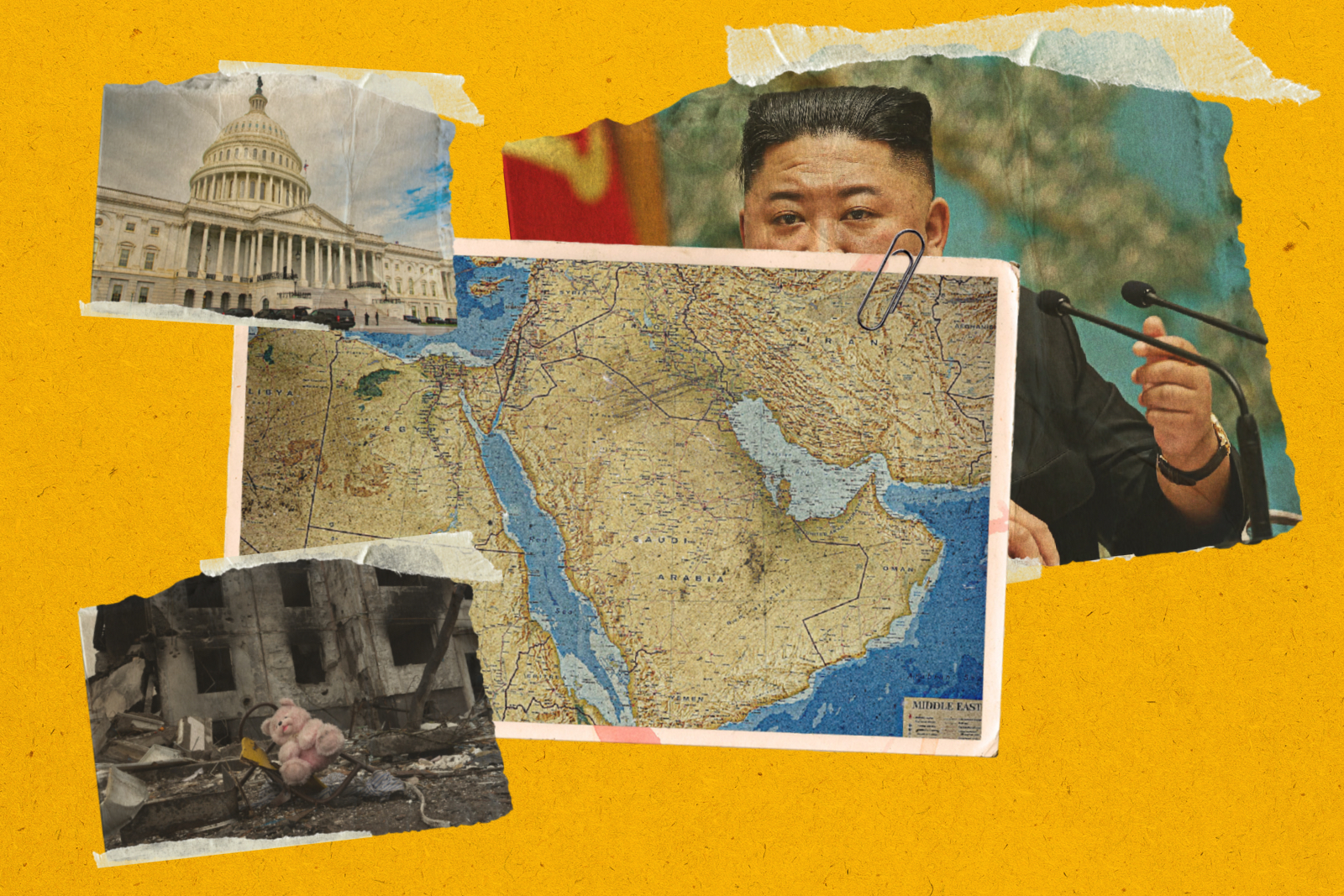
How Washington Can Make itself Relevant Again
Since the end of the early 1990s, the United States has been the sole superpower. In that role, it has become the enforcer of the rules-based international order, as it interprets it. However, that authority is now being called into question.
Many would argue that this is not without justification. The argument is made that the U.S. has failed to act impartially and this has led to an erosion of trust.
If we go back a generation, this was not necessarily the case. During the first Gulf War and the war in Afghanistan to oust the Taliban, the United States achieved global consensus and protected the rules-based international system.
Fast forward to today and the evidence of U.S. diplomatic inertia is widespread. U.S. failings can be traced to its policies in the Middle East, its approach to China, and now the war in Ukraine.
The Middle East
Wherever you look in the region, the scars left by ill-conceived American foreign policy initiatives are evident. You see it in the failure to achieve any progress with Iran; you see it with the Abraham Accords; and you see it in the failure to find any meaningful solution to the Israeli-Palestinian conflict.
Whilst no one underestimates the difficulty of finding consensus in a historically polarised region these are all symptoms of a lack of trust in the U.S. as an honest broker. Washington’s unwavering support for its allies, regardless of circumstances, has undermined its moral authority.
Moreover, Washington is working on an outdated concept of the region. Washington views the Middle East as, by and large, the Arab world plus Iran, Israel, and Turkey. This consensus is born out of a post-colonial vision of the region. For decades, too many think tanks, policy units, and advisors have stuck to the same map of the region, rather than recognizing that the region has widened to include North Africa, as well as other key players.
For example, the civil war in Libya has destabilized Mali and its neighbors – a consequence that doesn’t fit with America’s narrow view of the region. The U.S. also appears to underestimate the impact of globalization in the region; wealthier Middle East nations now have more in common with Singapore than they do with Baghdad.
The U.S. map made more sense a generation ago when Washington had greater influence in the region. But its influence has waned because its perception of the region is outdated, which in turn has marginalized its relevance. The U.S. is making very little effort to reverse this trend, perhaps because they are preoccupied with looking East, seeking to curtail Chinese influence.
The chaotic and humiliating retreat from Afghanistan, which allowed the Taliban to return to power and reverse a generation of social reforms, and the failure to stabilize Iraq, Lebanon, Syria, and Yemen are all symbols of its waning authority.
The war in Ukraine
The war in Ukraine is often paraded as a major foreign policy success for the Biden administration. But on what basis? Yes, Washington has stood by President Volodymyr Zelensky and armed Ukraine to the hilt, which has allowed Ukraine to weaken Russia militarily. Most people would agree that this was necessary and commendable. But the Ukrainian economy has been shattered, with little prospect of recovery, while the death toll mounts. What diplomatic efforts have been made to bring both sides to the negotiating table?
President Biden has talked about building a global consensus against Russia and tough economic sanctions remain in place, but this is an alliance of Western nations. Much of the non-Western world has not been persuaded by the Western argument, choosing either not to take sides or, in some cases, offering tacit support. South Africa recently announced plans to hold joint naval exercises with Russia and China. Meanwhile, the limitations of U.S. influence were made clear to Biden when he attempted to convince the Saudis to increase oil production and was rebuffed.
There is no end in sight to the war and the West, led by the U.S., has done little to help construct an ‘off-ramp’ which might save Ukraine’s economy from obliteration or offer a strategic vision for a post-conflict future.
Approach to China
Recently released cabinet papers revealed that Tony Blair’s government wanted to bring Russia closer into the international order but was thwarted by Washington. This was a mistake. Yet, with China’s power on the rise, we can see the same mistake being made in real time.
The West has chosen confrontation over cooperation. For Biden’s predecessor, it was a way to woo the ‘Rust Belt’ states, appealing to blue-collar workers who felt their jobs were threatened. But it was never a plausible or coherent long-term strategy. Economically, China is too strong to be ignored and confrontation would require a reset of the international order, leading to huge human suffering.
A better approach is old-fashioned Realpolitik. China cannot be defeated so it would be more sensible to divide up the economic spoils and begin a process of de facto power-sharing, based on spheres of influence.
Regaining trust
What actions, then, can Washington take to regain trust?
Use diplomacy, not arms, to find a resolution between Russia and Ukraine to bring peace to the region.
Find a new consensus with China that involves greater cooperation and integration into the international order.
Push for an expansion of the Abraham Accords with a Palestinian solution at its heart.
Prioritise a deal with Iran to encourage Tehran to act as a partner, not as a pariah state.
Recognize that North Korea has forced its way into the nuclear club and the strategy of containment has failed. Thus, keeping lines of communication open is paramount.
None of these are easy tasks, but attempting to find solutions would, at least, help the U.S. regain a reputation for straight dealing, which is the only basis for restoring trust.

